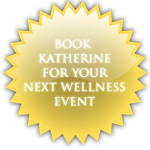Crossing the Threshold Into the New Year
- At December 06, 2010
- By Katherine
- In Articles
 0
0
What are your hopes, dreams and desires for 2012? The new year is an important time to consider the year that has past and to begin moving intentionally into the future.
One New Year, I attended an inspiring National Cathedral College – sponsored event, “Crossing the Threshold: A Contemplative New Year Retreat.” I have tried to describe and re-create the experience for you so that perhaps you can try the exercise yourself and come up with your own plan for the coming year.
A Plan For 2012
To start… with help from our personal calendars, the group of us reviewed the previous year’s important people, events, places, and ideas. Using poetry, music, art, prayer and time for personal reflection, I and the other participants analyzed what made us happy last year. What were our achievements? What were the bumps in the road? What would we like to do more of – or less of – this new year?
We then moved mindfully across the threshold into a new year filled with ideas, possibilities and plans! We analyzed people who will continue to be important, ideas to explore, places to spend time, important events and things to carry over from last year to this year. Most importantly, as a result of 2 days’ exploration, each of us decided on one “Summary word” for the new year (mine was focusing on feeling GRATEFUL – as opposed to focusing on disappointments or bumps in the road) and one important goal to achieve this coming year (mine is FEARLESSLY diving into a new year filled with rewarding work and love) , along with other goals.
Funny, many people chose LOSING WEIGHT, IMPROVING DIET, BEGINNING EXERCISE, IMPROVING HEALTH, or GETTING OFF MEDICATIONS as their goal for the year. I was touched by this. At the same time that I am grateful that I have achieved these goals for myself (it hasn’t always been easy) and have helped hundreds of others do the same, I felt anxious to find a way to help the others achieve these critical – but ACHIEVABLE – health goals. As you know, I feel passionate about helping people achieve their health and weight goals and feel terrible when I know someone else is miserable or feels hopeless about their bodies or their health. And, as you know, I am here for you, my friends, family, colleagues and clients. So please reach out and contact me.
As usual, everything I experience benefits (or irritates!) people I encounter. So, as I have been working with people this year and visiting friends, we’ve discussed similar passages. What was important last year? What do you feel good about? What would you like to change for this new year to come? What is your goal for the new year? I believe it is crucial that you give these questions serious thought so that you can live a happy, mindful and purposeful life.
Feeling A “Sense of Urgency”
An important aspect to making major changes in the world or in your own personal habits is to feel a SENSE OF URGENCY about your goal. A sense of urgency, according to The Dalai Lama – and scholars in this important field of psychological research, can be achieved by reminding yourself of your positive vision for your own success, but also pondering the negative consequences of not making a particular behavior change (a little fear can be a good thing – but just a little). For instance, in the morning as you’re considering two options: getting out of bed to exercise OR sleeping just a little longer, OR when you get home from work and you’re deciding to plop in front of the TV to zone out or go out and take a walk, you could think… “Do I want to feel good today or do I want to feel crummy today?” “Do I want to achieve my weight loss goal or will I accept being the same weight and having the same health problems for another year?” “Do I want to stop taking these darn medications or will I be taking them forever – and even increasing the dosage. What will my doctor say?” “What kind of example am I setting for my children, my spouse? Is this a behavior I can be proud of?” etc. You get the idea…
Achieving Increased Happiness
Outlining the consequenses of your actions and acting on your long term goals (as opposed to momentary desires) helps you grow as a person and become a happier person, according to scientific research. It actually increases your general happiness level.
Usually, when we do something that feels good momentarily, such as grab a coffee cake at the coffee shop when we originally just planned on buying coffee, or buy an extravagant meal, a piece of jewelry, a new suit, our happiness level may increase – but only temporarily. It goes back to the same level it did before once the newness of the item or the temporary experience wears off – and nothing changes in our lives. We may even become more depressed as we continue to “give-in” to these unfulfilling momentary desires and continue into a downward spiral.
If, instead, we say to ourselves, “I’d be better off going home and eating something healthy as I want to lose weight, lower my cholesterol, etc,” or “I really don’t need that coffee cake, and I’ll feel terrible after eating it,” or“That necklace is beautiful, but I really have all the jewelry I need and I could use the money for something more important,” or “That new suit is very sharp and I’ll look great in it, but will it really change my life?” Another more obvious example might be a drug addict relapsing. It feels great momentarily, but the feeling doesn’t last.
When you make a more thoughtful decision, which contributes to your longterm health – physical, psychological or financial – you are more likely to achieve your life’s hopes, dreams and goals, you can actually increase your happiness level, feel happier more often and grow as a person.
It takes effort to train your mind to work this way, but this is how we become better people and we advance as a society.
Music and Poetry
Music and poetry can move us in ways so mysterious, all we know after hearing something is that we feel so much better. I’ve made some selections that have made a difference for me and hope you enjoy them too.
Music and Poetry for the New Year
Creating a Vision for Success
Another influential behavior is creating a vision of how you’d like to be.
Having a vision guides you to your goal. Your powerful imagination, through visual imagery, can be harnessed to change your mental or physiological state. Visualization can create what you want in your life, as in the self-fulfilling prophecy. If you can envision yourself successful, you’re more likely to get it.
On the other hand, if you always assume you’ll be unsuccessful, you probably will! Many elite athletes use visualization just before they perform and swear by its ability to take them over the top to win. The downhill skier, for instance, will envision himself running the course successfully with all its twists, turns, and most difficult maneuvers until his triumph at the finish line.
The mind is a strong tool and can destroy and heal. Research shows cancer often occurs about six to 18 months after the death of a loved one. Prolonged feelings of helplessness and loss cause distress in the body, dampen the immune system’s ability to fight disease and allow diseases from colds to cancer to prosper.
But just as strongly as the mind can work negatively on the body, it can also work positively. Visualization can aid in healing and has been used successfully with people suffering from terminal illness. Many doctors have reported an increased rate of cancer remission when visualization therapy is used. The patient actually creates the positive image in his mind of the cancer shrinking and this aids in his recovery.
You already use visualization every day, but you’re probably not aware of it; daydreams, memories, and inner talk are all forms of visualization. This discussion – and future lessons – are about creating your own positive visions while rejecting the old deep-seated negative, limited, or stressful visions which may automatically pop into your mind and be a cause of mental and physical distress. These old attitudes make your situation worse and can even create negative results. But you can harness the pictures in your head in a more conscious way, change them, and create a better life for yourself.
This doesn’t mean simply “willing” yourself to lose weight or feel better, or “positive thinking.” Visualization involves the whole mind and body and effects you at a deeper more meaningful level. It involves a process of discovery, of exploring and changing attitudes and coping mechanisms you’ve had your entire life. In the process of using visualization to achieve your goals, you may begin to discover how you have been holding yourself back, keeping yourself from achieving complete satisfaction with life through old fears and negative concepts.
In today’s visualization lesson and in future lessons, you’ll learn to create what you want in your life: love, fulfillment, harmony, rewarding work, beauty, prosperity, good health, and a thinner, more energetic you; the way you were meant to be, and maybe even the you who you haven’t seen in a while!
Visualization Exercise
To begin, first create the image of how you would like to be: thinner? healthier? sexier? more energetic? more confident?
Then visualize yourself doing something you’d enjoy with your new self: walking jauntily through a garden, your favorite street downtown, or through your neighborhood. See yourself energetically walking up a hill or a flight of stairs with a smile on your face, enjoying yourself and the fresh air.
Use all your senses. What colors are you wearing or experiencing? Are you wearing a navy suit, a red t-shirt with jogging shorts, a black evening dress or tuxedo?…
What sounds are you hearing? Are cars buzzing by, birds chirping, children playing, or waves crashing against the sand?…
What are the smells? Do you smell salty air, fumes from automobiles, flowers in the garden?… Be specific;
Make your vision as real as possible, as if it is actually happening.
For more fabulous tips and simple, effective ways to lose weight,
buy her book, Diet Simple!









